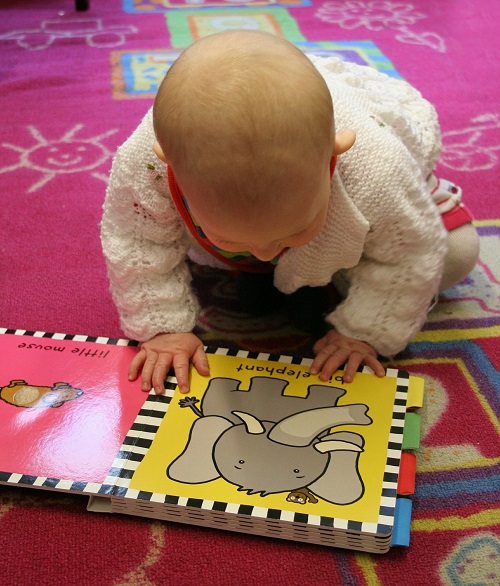Most of the jobs you could get with a master’s degree in reading and literacy – one of the 50 highest paying master’s degrees – are in schools of some kind. However, the career opportunities for reading and literacy specialists are a lot more varied than most people realize. Graduates from a master’s degree program in reading and literacy can work for nonprofit organizations, healthcare facilities, private companies and corporations and more. Even jobs in schools for literacy specialists are more diverse than you might expect, focusing on literacy instruction at different grade levels and conferring different responsibilities on the literacy specialist.
IMAGE SOURCE: Pixabay, public domain
Jobs in Nonprofit Organizations With a Master’s in Literacy Degree
Being able to read and write can change how you view the world. It’s no wonder, then, that nonprofit organizations often focus on literacy, including helping at-risk, low-income or otherwise underprivileged and underserved children and adults build their literacy skills. If you really want to make a difference but don’t necessarily want to work in a traditional school setting, you could use your master’s degree in reading and literacy to work for one of these nonprofit organizations that are dedicated to enhancing literacy.
Different nonprofit organizations have different missions, so if you really want to work in the nonprofit literacy sphere, figure out which organizations most closely fit your values. Volunteering or interning with these organizations can help you get your foot in the door.
Working in Healthcare Settings With a Graduate Degree in Reading and Literacy
You may not think of literacy specialists as playing a big role in hospitals and other healthcare settings, but healthcare is one of the fields you could end up working with your master’s degree in reading and literacy. Children’s hospitals, where kids with medical conditions may have long stays that keep them out of school, often have reading and literacy programs for child patients. Healthcare companies that offer speech-language therapy may also have a need for literacy and reading specialists who can provide home care services as well as literacy instruction in community centers.
You don’t need a healthcare background to work as a literary specialist in a healthcare facility, but having a positive attitude, a good bedside manner and knowledge of or a willingness to learn about the impact of medical conditions on literacy learning can help.
Master’s in Literacy Jobs With Private Companies
Companies and corporations also hire people with a master’s degree in literacy and reading. Often, these companies operate in the education industry. They may directly hire literacy teachers for jobs in schools with which they have a partnership. Private companies in education also hire literacy specialists for roles in tutoring and writing help services and for developing materials and program curricula. Publications in the field of education may also consider candidates with a master’s degree in literacy for roles in education writing, in which you might cover industry trends and research.
Beyond the field of education, corporate literacy specialist roles usually focus on employee training and education. These roles exist primarily in large corporations where numerous employees must be trained, rather than in small businesses with only a limited number of workers.
You could also use a master’s in reading and literacy degree to be self-employed as a reading and writing tutor and adult literacy teacher. Self-employed literacy specialists may open their own office space, travel to students’ homes or work remotely via the Internet.
Reading and Literacy Jobs in Schools
In spite of the other potential career opportunities, most graduates of a master’s degree program in this field will end up working in a school. However, the precise role you fulfill as a literacy specialist in a school and the student population you work with can be very different. You might work directly with elementary school students, middle school students, high school students or even adult learners. You might also work behind the scenes in a role that emphasizes curriculum development. Some literacy coaches work in after-school programs or tutoring programs, either instead of or in addition to traditional literacy instruction jobs in a school setting.
Even colleges, especially community and junior colleges, may employ reading and literacy instructors to help adult learners get their reading and writing skills up to the level needed to succeed in college.
Additional Resources
Is Reading and Literacy a Degree Meant for Teaching Mostly Elementary Children?
Do I Need to Have Teaching Experience Before Entering a Program for Reading and Literacy?
What Traits Does an Admissions Office Look for in Candidates for Reading and Literacy Master’s?

